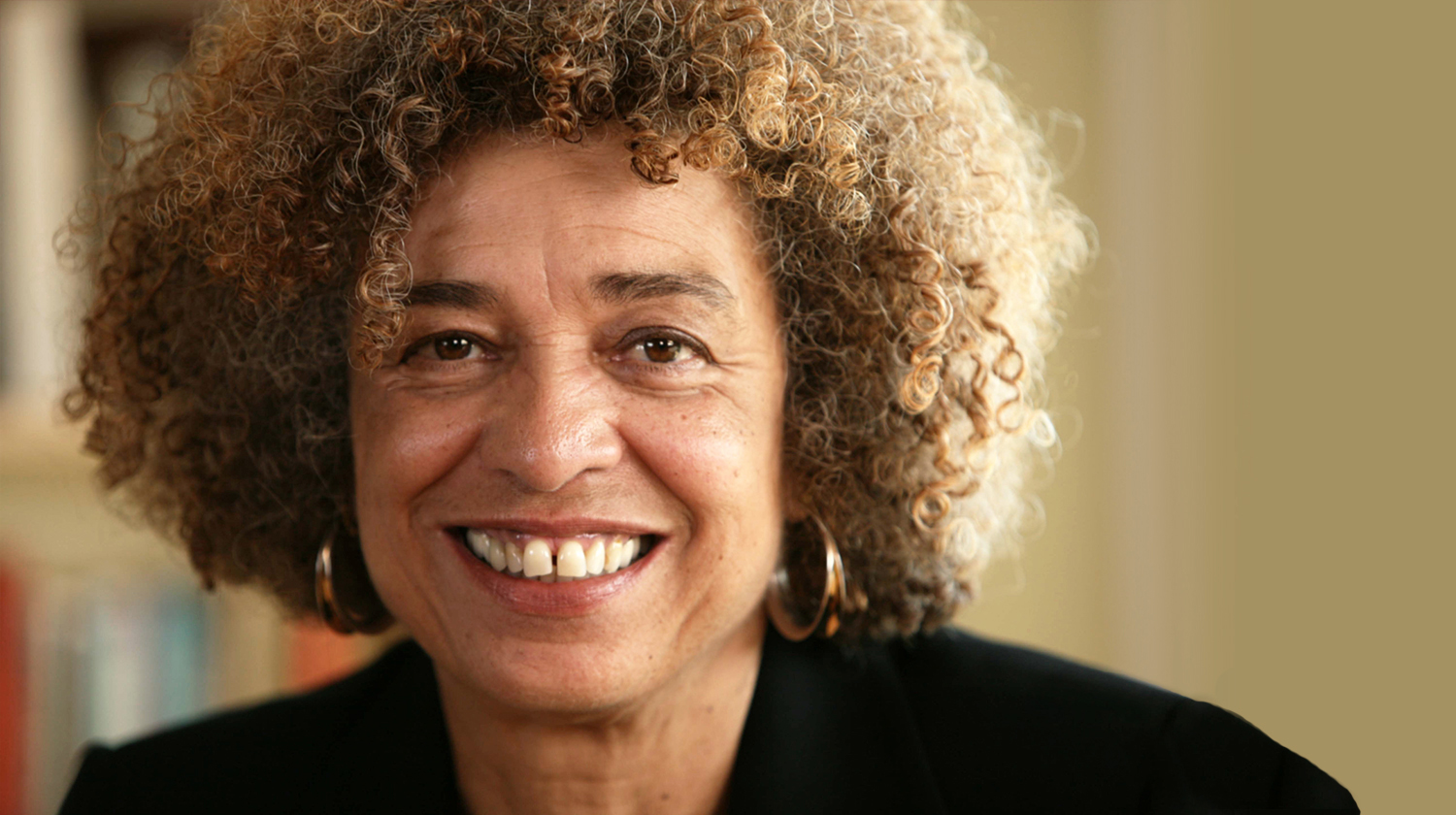 An intellectual rock star took the stage at Cal State Dominguez Hills – and the audience roared as if at a concert.
An intellectual rock star took the stage at Cal State Dominguez Hills – and the audience roared as if at a concert.
That rock star was Angela Davis.
Davis, one of the most eminent political and cultural philosophers of the last half-century, gave an approximately 90-minute lecture in Dominguez Hill’s gymnasium Monday evening, Feb. 11, weaving a centuries-long narrative about the struggles of oppression – from Native American genocide to transphobia – and urging her audience to “imagine a different world.”
At 75, Davis – still with her trademark Afro and powerful voice – captivated the audience with ease.
The approximately 1,000 people in the gym sat rapt, hanging on Davis’ every word. They applauded, hollered and snapped their fingers in approval as she framed a future, steeped in the lessons of black people’s struggles for justice, where everyone was free.
“Black people have resisted the imposition of history from the very beginning,” Davis said. “They resisted slavery 500 years ago and are still resisting. This is pretty remarkable.”
Davis spoke at Dominguez Hills as part of the Dymally Distinguished Speaker Series, which kicked off in September with Rep. Karen Bass (D-Inglewood), chairwoman of the Black Congressional Congress. The Mervyn M. Dymally African American Political and Economic Institute at Dominguez Hills organized the series and brought Davis to campus for Black History Month.
Davis has been a renowned – and, in some circles, controversial – figure for decades. This year marks the 50th anniversary of then-California Gov. Ronald Reagan urging the UC Board of Regents to fire Davis from her first teaching gig, as a UCLA philosophy professor, because she was a member of the Communist Party.
A year later, she found herself underground and on the FBI’s 10 Most Wanted List after being charged with kidnapping and first-degree murder when her security guards – for whom she bought firearms – used those weapons to break prisoners out of a Marin County courtroom. Judge Harold Haley and three others were killed in the ensuing shootout.
Davis was acquitted of all charges.
She then spent the ensuing five decades as a leading activist for social, racial, gender and economic justice. She is the author of nine books and a staunch proponent of abolishing the prison system, which, she said during the lecture, has been used to further oppress people of color.
On Monday evening, Davis used Black History Month as a way to illustrate how social justice movements are interconnected and must be analyzed together.
“In many ways, people who are not black have benefited from black freedoms,” she said. “Black History Month does not belong exclusively to black people.”
Davis began her speech by describing how the struggles of black people have been linked to the those of Native Americans: Indigenous peoples, she said, were the first to face oppression at the hands of Europeans.
Then came black people, she added. Then women. Then working class white people.
“Not all those participating in black struggles have been black,” she said, referencing abolitionist John Brown, who was white. “Sometimes we think really simplistically and equate identity with politics.”
Davis moved forward, talking about the struggles to seize rights for women, the poor, the LGBTQ community – and environment.
“If change doesn’t happen,” she said, “there is no future for this planet.”
Each step Davis described along the journey toward equality was interrupted with cheers – which echoed in the gym’s rafters and shook the bleachers.
Davis ended her lecture with a series of rhetorical questions about how to transform society.
“What would it be like,” she concluded, “if we created a society where we all feel like we are truly equal?”
Then she stepped away from the microphone. The crowd stood and roared. And Anthony Asadullah Samad, the Dymally institute’s executive director, tried to speak over the crowd:
Davis, he said, ” is an example of intellectual brilliance.”
Source: Daily Breeze